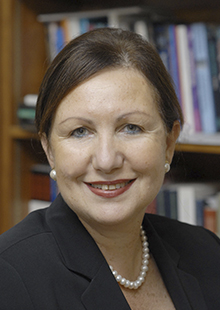
It is almost impossible to check the news and not see a new article about the Syrian refugee crisis. Reports and images illustrating the atrocities of the situation flood the media. The only thing missing is solutions.
The MacMillan Center – aided by the European Studies Council, the European Union Studies Program, the Hellenic Studies Program, the Middle East Studies Council, the Global Justice Program, and the Ethnicity, Race, and Migration Program – aimed to close the gap between mere discussion and policymaking by inviting a panel of five experts to share their views on the current migration catastrophe.
Seyla Benhabib, Eugene Meyer Professor of Political Science and Philosophy at Yale; David Cameron, Professor of Political Science at Yale; Georg Fischer, a visiting fellow of the European Union Studies Program at Yale; Chris George, the Director of Integrated Refugee and Immigrant Services in New Haven; and Sigrun Kahl, Assistant Professor of Political Science and Sociology at Yale, each took turns talking about the refugee crisis.
Professor Behabib kicked off the conversation with declaration that “refugees are being rendered invisible.” She pointed to the 1951 Convention relating to the Status of Refugees and the 1967 amendments as the two documents that created the legal distinction between refugees and migrants. A refugee is a person who seeks asylum on a well-grounded fear of persecution in their home country, and a migrant is someone who voluntary crosses borders for economic betterment.
“Whereas refugees are entitled to asylum protection, migrants are not,” she explained. “Countries are trying to prove that refugees are actually migrants.”
States engage in this type of legal jockeying to circumvent their humanitarian responsibilities. Professor Benhabib argued that until the institutional chaos and distinction is resolved, refugees will continue to be “hunted like game and wild animals.”
She also contended that the United States must bear some of the burden by taking in and aiding the refugees.
“We carried out a war in Afghanistan. We are involved in some dubious way in Syria. We have to step up to the plate. It’s the Pottery Barn principle: If you break it, you buy it,” she said.
Professor Cameron lamented that the European Union was not prepared for the influx of migrants and cited Hungary blocking closing off its borders as unproductive European actions to resolve the crisis.
Mr. Fischer, however, found hope in European pride. He recounted how Europeans always say they can find a European solution to any problem, no matter how difficult.
Germany has already taken the lead in Europe by pledging to welcome about 800,000 refugees, said Professor Kahl. Unfortunately, public opinion against the refugees is putting increased pressure on Angela Merkel’s regime to end its sympathetic migration policy.
Mr. George, however, shared an optimistic view. He believes that people in both the United States and Europe will begin to understand that migrants strengthen economies and societies.
“It’s a false choice to say that we have a lot of people who need help, but we should not take them in,” he said. “People just need to meet them and get to know them.”
